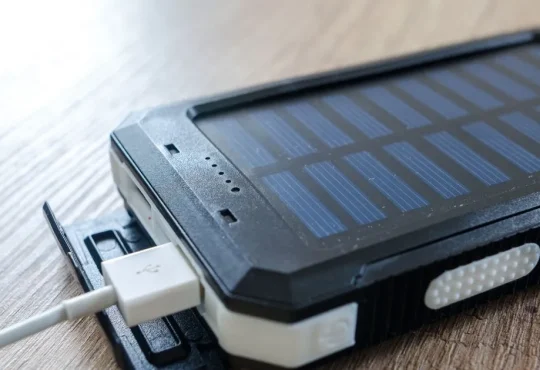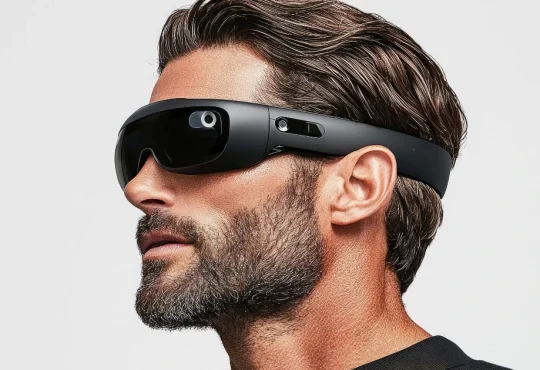In today’s age, where gym sessions are shared on social platforms, and drones can record mountain biking adventures, the fusion of fitness and technology is unmistakable. However, determining the ideal device for your requirements when considering wearables to track and inspire progress toward your fitness aspirations might pose a challenge.
Fitness Technology Guide: Selecting the 4 Ideal Wearables!
Exploring the world of wearable technology can be daunting, so it’s crucial to start by assessing your fitness goals and priorities. Are you aiming to improve your marathon time or focus on completing a seven-day hike along the coast? A clear picture of your objectives will assist you in choosing the device that best meets your needs.
Remember, selecting a wearable device isn’t solely about its features. Your budget and personal preferences play significant roles as well. It might not be the right choice if the device is uncomfortable or prohibitively expensive. You might prefer a simple, sleek design that complements your office attire, or you might be a tech enthusiast who wants all the advanced features of a high-end smartwatch, regardless of its visibility. Achieving the ideal mix of style, comfort, and functionality demands persistence and commitment.
Different Kinds of Wearable Technology for Fitness:
No matter your objectives, a wearable device exists specifically for you. Beyond measuring calories expended, wearables typically provide accurate activity tracking.
Fitness Trackers
Fitness trackers are akin to the Swiss Army knives of wearable technology. They monitor your steps, analyze your sleep patterns, and even remind you to move if you’ve been inactive for too long. Many modern fitness trackers also include heart rate monitoring capabilities and can track specialized metrics based on your chosen activity.
For a comprehensive yet reasonably priced option, consider some of the popular fitness trackers on the market. For instance, the Fitbit Charge 5 features an ECG app for monitoring heart health and sensors to track your daily Stress Management Score. Other budget-friendly choices include the Garmin Vivosmart 4 and the Xiaomi Mi Band 6.
Smartwatches
Smartwatches elevate the capabilities of fitness trackers by incorporating additional features. Beyond the fundamental step counting and sleep monitoring, they enable users to place and receive phone calls, send messages, access various applications, and enjoy music during workouts.
Moreover, certain smartwatches offer contactless payment functionalities, allowing users to conveniently purchase items like post-workout smoothies without searching for their wallets. While popular choices such as the Apple Watch Ultra, the Samsung Galaxy Watch 5 Pro, and the Garmin vivoactive 4 offer many functionalities, they usually come with a higher price tag than fitness trackers.
Heart Rate Monitors
When conveying a serious commitment to one’s workout routine, a few accessories make as bold a statement as a heart rate monitor securely fastened around the chest. While fitness trackers and smartwatches often boast integrated heart rate monitoring capabilities, recent research underscores the superiority of standalone heart rate monitors in delivering highly accurate readings. This enhanced precision renders them indispensable tools, especially for athletes and fitness enthusiasts striving to fine-tune their training regimens for optimal performance and results.
The appeal of standalone heart rate monitors lies not only in their accuracy but also in their reliability under various workout conditions. Unlike some integrated heart rate monitoring systems that may falter during intense or dynamic exercises, standalone monitors maintain consistent performance, providing real-time data crucial for monitoring exertion levels and ensuring efficient training progression. With their ability to deliver precise metrics, these monitors empower athletes to make informed decisions regarding workout intensity, recovery strategies, and overall fitness improvements, thereby elevating the effectiveness and impact of their training endeavors.
GPS Tracking Devices
For those who enjoy outdoor exercise, GPS tracking devices are invaluable. These devices prevent you from getting lost during off-road adventures and offer detailed data on your speed, distance, elevation changes, and route. This level of precision helps you track your progress and set new goals, making your outdoor workouts more effective and enjoyable.
Top-notch options for trail enthusiasts and adventure seekers include the Garmin Forerunner 945, the Suunto 9 Baro, and the Polar Vantage M2. These devices are engineered to endure the demands of outdoor activities while providing accurate and comprehensive tracking data. Whether running, hiking, or cycling, these GPS-tracking devices provide the information you need to enhance your performance and ensure safety during your journeys.
Incorporating Wearable Tech into Your Fitness Routine
To assist in selecting the perfect wearable, consider various scenarios where your athletic profile might determine the most suitable device type for you. Below are guidelines for choosing the ideal fitness tracker tailored to your preferred exercise routines.
A heart rate monitor designed for endurance athletes
For athletes who thrive on pushing their limits, whether it’s conquering marathon distances with ease or clocking more miles on their bike than on their car’s odometer, a heart rate monitor emerges as a vital companion. Whether you’re a seasoned marathoner or a dedicated cyclist, effectively managing your endurance and performance is paramount to achieving your training objectives and reaching peak athletic performance.
Runners and cyclists, in particular, often gravitate towards chest strap heart rate monitors for their unparalleled precision and ability to provide continuous heart rate data. This level of accuracy is essential for navigating various training zones during intense runs or rides, allowing athletes to fine-tune their efforts and monitor progress with unwavering reliability. With such dependable metrics, athletes can strategically optimize their training regimen, pushing boundaries while safeguarding against the risks of overtraining or injury. The insightful data provided by heart rate monitors empowers endurance athletes to make informed decisions about their workouts, ensuring each session contributes to their overall fitness goals.
Furthermore, the versatility of heart rate monitors extends beyond endurance training sessions, offering valuable insights into recovery periods and overall cardiovascular health. Tracking heart rate variability and resting heart rate trends over time, athletes can better understand their body’s response to training stressors and adapt their routines accordingly. This holistic monitoring approach enhances athletic performance and fosters a sustainable and balanced approach to long-term fitness and well-being.
A Smartwatch for the Yoga Enthusiast
For those who view their yoga mat as a sanctuary and have embraced smart technology to enrich their practice, a smartwatch emerges as an invaluable companion. Beyond simply telling time, these devices offer a variety of features that can improve every aspect of your yoga journey. From monitoring stress levels to maintaining a serene mindset, a smartwatch becomes essential for achieving mental and physical balance during your sessions.
Following a rejuvenating yoga practice, as you luxuriate in the tranquil post-shavasana glow, a smartwatch app on your wrist provides a seamless transition to guided meditation. You can deepen your mindfulness practice and elevate your overall yoga experience by effortlessly shifting from physical exertion to mental relaxation. This technology integration enhances relaxation and promotes holistic well-being, cultivating a deeper connection between mind, body, and spirit.
A Fitness Tracker for the Strength Trainer
For those who thrive on weightlifting challenges, whether curling dumbbells or dominating the squat rack, a fitness tracker becomes an indispensable tool in their arsenal. More than just a timepiece, these devices are virtual personal trainers on your wrist, monitoring crucial metrics such as heart rate and workout duration to optimize your strength training sessions. You can push your limits with real-time insights while maintaining safe and effective workout intensity levels.
Despite the availability of similar functions on smartwatches, fitness trackers offer distinct advantages such as a smaller form factor and a more budget-friendly price point. This compact design ensures greater comfort during intense workouts and makes the tracker easier to wear overnight. Considering the pivotal role of sleep in muscle recovery and growth, wearing a smaller tracker overnight can promote uninterrupted rest, enabling you to wake up feeling refreshed and ready to take on your day next training session with renewed vigor.
A GPS Device for the Backcountry Athlete
A GPS tracking device is essential if the wilderness is your playground, whether hiking, trail running, or mountain biking. These devices excel at tracking your route, speed, and elevation changes using advanced GPS technology, ensuring you can safely navigate back home at the end of the day. Many also come with safety features connecting you to emergency responders if you get lost or injured.
Many GPS trackers, such as those from Garmin, also offer body battery metrics to help you monitor your energy levels. This feature lets you plan your activities more effectively and know when to take a break, enhancing your overall outdoor experience and ensuring you stay safe and energized during your adventures.
Conclusion:
Whether you’re running marathons, practicing yoga for inner peace, lifting weights for strength, or exploring the wilderness, a suitable wearable technology is poised to enhance your fitness journey. These devices go beyond appearance and impressive features; they act as your digital companions in wellness, allowing you to track, analyze, and improve your performance, whether it’s a single step, stretch, repetition, or mile. So, whether you’re strapping on a heart rate monitor, syncing a smartwatch, or activating a GPS device, embrace the chance to embrace the futuristic world of fitness technology.





